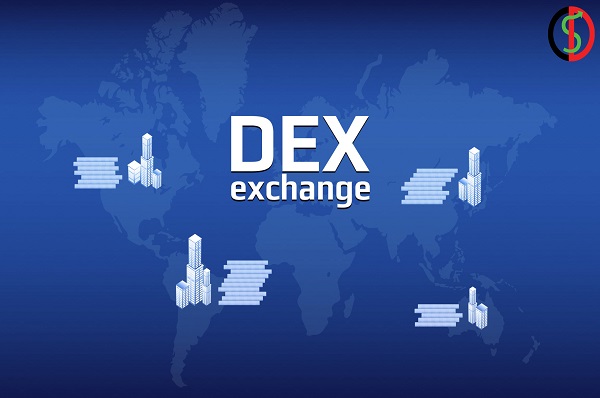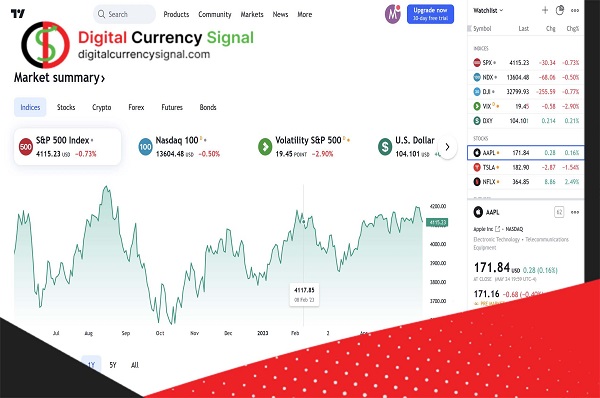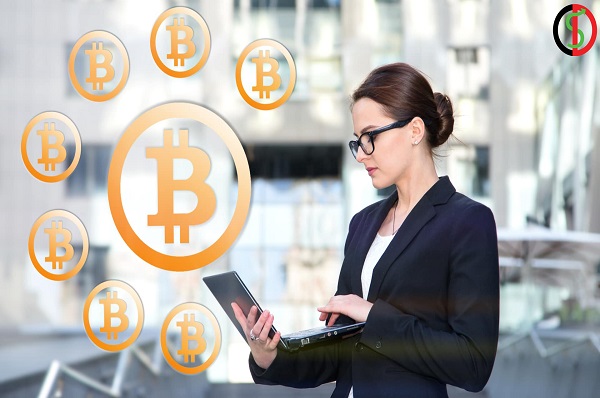A decentralized exchange is a platform where the process of buying and selling digital currency is similar to traditional transactions; But it is built on blockchain and all operations are done automatically without the need for intermediaries and permission. Decentralized exchanges are peer-to-peer; That is, digital assets on this platform are exchanged directly between buyers and sellers without intermediaries. You must have started your entry into the world of digital currencies by creating an account, filling out the personal information form, creating a password, verifying the information and going through the authentication process and depositing funds from the bank account and then a make a transaction; But you should know that this is not the case with decentralized exchanges. On these exchanges, you can start trading cryptocurrencies without doing any of these steps, just connect your wallet to the platform.
History of Decentralized Exchange
When Bitcoin started in 2009, there was no exchange or platform dedicated to buying and selling it. The first stock exchange established for this purpose was the central stock exchange; But the nature of the centralized exchange ran counter to Bitcoin’s original goal of a decentralized, peer-to-peer financial system. Additionally, centralized exchanges have been an attractive target for hackers, and many examples of hacking and stealing user assets have occurred on these exchanges. These problems led to the idea of an exchange that was in line with the main purpose of Bitcoin. The first decentralized exchange was launched in 2014 called NXT Asset Exchange; But the exchange only traded its domestic assets for its NXT token. 2014 was a boom year for the decentralized exchange, but at the same time, cryptocurrency activists recognized the dire need for decentralized exchange platforms. Therefore, he announced his intention to create such a platform.
How to use a decentralized exchange?
To use decentralized exchanges, there is no need to register and enter an email, and it is enough to have a wallet that is compatible with the smart contract of that exchange and connect it to the platform. The first step is to choose your blockchain network; Because of fees in different industries for different transactions. The next step is to select a network compatible wallet and deposit some tokens into the wallet. Each blockchain network uses its native digital currency to make payments. The wallet has a search extension that makes it very easy for users to use virtual applications (dApps) such as virtual transactions. You can easily install these extensions on your browser and get the wallet using the warning phrase there. You can also create a new wallet in the browser after installation and increase your security by creating a password in the plugin.
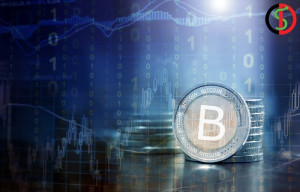
Some wallets also use mobile software that has a browser. Using this software, you can access decentralized exchanges from a single mobile phone. One feature of wallets is that you can move them from one device to another. After setting up your desired wallet, the next step is to purchase your chosen blockchain token from the central exchange and deposit it into your wallet. Remember that you should not send tokens to a network other than your own; Because then you can’t recover them. After depositing tokens into your wallet, use the “Link Wallet” option to connect it to the decentralized exchange platform and start trading.
Benefits of DEX Exchanges
1.Reliability
Everyone can see real-time and transparent information about the exchange’s operations and its performance under various conditions.
2.Protection and security
Hundreds of millions of dollars are stolen every year from centralized exchanges. Statistics show that in 2018 alone, more than a trillion euros in assets were stolen from these exchanges. In decentralized exchanges, smart contracts can be implemented as a solution to combat fraud. When a smart contract is entered into with specific terms of execution, the parties to the transaction must meet the specified conditions in order for it to be executed. If any of the terms of the contract are violated, the contract will be void and the work will not be performed. In addition, the most important advantage of smart contracts is that once registered, they are executed independently and automatically.
A decentralized exchange uses a network of interconnected computers similar to a blockchain network. For this reason, they have a high degree of security against hacking and cyber attacks that endanger the user’s property. Of course, since DEX exchanges (especially second-generation exchanges) store all assets using smart contracts, problems can arise, so the possibility of asset theft cannot be ruled out. For example, we can mention the theft of 50 million dollars from the DAO project and the hard fork of the Ethereum network and the birth of the Ethereum Classic currency, which happened in 2016 and dealt a huge blow to the entire Ethereum platform.
3.anonymization
The high degree of anonymization is another advantage of decentralized exchanges. The DEX exchange only accepts users’ wallet addresses and does not require personal information for transactions.
4.stability
The probability of a decentralized digital currency exchange system crashing is almost zero, and users don’t have to worry about it. This great power of DEX transactions is due to their nature, unlike traditional exchanges, their operations are not transferred to a single server.
5.No authentication required
Compliance with user authentication and anti-money laundering laws is a very important issue for centralized exchanges. For regulatory reasons, individuals are often required to provide proof of identity and address. Identification and documentation raise privacy concerns for some and convenience concerns for others. On the other hand, what if we don’t have access to valid documents for authentication? Since there are no intermediaries in a decentralized exchange, no one verifies your identity. All you need is a cryptocurrency wallet.
6.There is no risk of hacking in a decentralized exchange
The main advantage of decentralized cryptocurrency exchanges is that they do not own funds for customers.
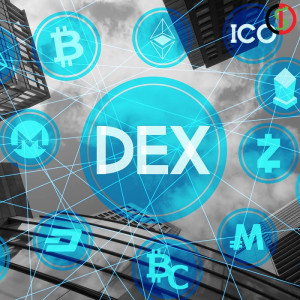
Disadvantages of DEX exchanges
1.Harder to use
If you don’t have enough knowledge about digital currency, using a DEX exchange can seem confusing and difficult at first. Therefore, to understand how to operate and use this type of exchange, you often need instructions and guidance provided by a professional user.
2.Limited order types
Only limit and market orders can be entered on DEX exchanges. At the same time, focused competitors provide you with more opportunities in this area.
3.long operation time
Because DEX transactions are made on their own blockchain, their processing takes longer than a centralized exchange. Therefore, decentralized exchanges cannot handle a large volume of transactions.
the best decentralized exchanges
- Uniswap
- PancakeSwap
- Curve
- SushiSwap
- SpookySwap
- QuckSwap
- Raydium
- TraderJoe
- SundaeSwap
✅Conclusion
Decentralized exchanges are designed to address the concerns of digital currency users about security and decentralization, and users’ own control over assets. Since then, these exchanges have experienced significant growth and have increased in popularity; So that some decentralized platforms are now competing with the largest centralized exchanges. Centralized and decentralized exchanges have significant differences mentioned in this article, and I said that each of these differences brings advantages to one of these two types of exchanges. In general, decentralized exchanges are emerging and have seen significant growth in their short lives. Some of these exchange problems cause them to lag behind centralized exchanges in attracting institutional capital. However, if these platforms continue to function in the same way, it is possible that we will soon see large organizations moving to these markets.

